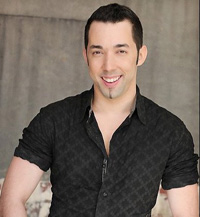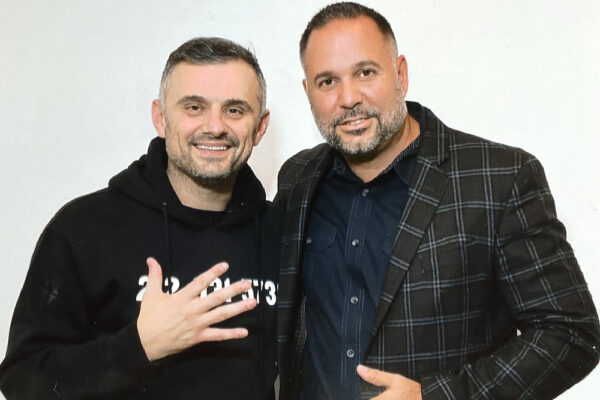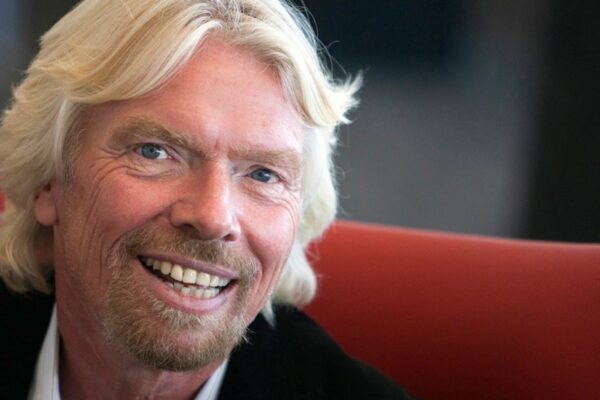 Hi Steven, welcome. Tell us a few things about yourself.
Hi Steven, welcome. Tell us a few things about yourself.
Steven: Thank you very much for having me. Well, I’m 29 years old, originally from Freehold, N. J., and am the founder of grapevine pr, a Los Angeles-based lifestyle, and entertainment PR firm.
You started this PR company at 24 as a side job. How did you come up with the idea?
Steven: Literally, I had just graduated from college a couple of weeks prior. I had known that I wanted to get into PR, which is what I majored in while at William Paterson University. The reason I decided to start my own PR agency was that while interning at a local PR and marketing agency, I had begun to handle an independent jazz artist, Sylvia Pilar. I figured that for the hell of it, it would be a good idea to form sort of a moniker or a “skeleton” company to ground all of this work.
What then happened was I had handled this particular client for a few months in the summer of 2006, on the side of my internship, and then in the Fall of 2006, I accepted a full-time position at a large real estate PR firm and put what was called GrapeVine Promotions, on hold. I then put all of my energy into this new job and was landing clients’ major placements, but was feeling that I didn’t belong in such a corporate culture. I’ve always been eccentric in that I liked to do my own things. So I started up the company again, changed the name to grapevine pr, and started sending out new business pitches. That was when I received a response from a popular TV/film actor and began representing him. Then things changed fairly quickly, within six months, and before I knew it, I had to make a decision and was completely out on my own.
And five years later, you have an impressive list of clients. Can you name a few?
Steven: I’ve been blessed to represent such a diverse and wonderful group of clients. I’ve represented various filmmakers, such as Guest House Films, Nandar Entertainment, and Casper Andreas; a handful of underwear and swimwear brands, like Baskit, Todd and Terry, and 2wink; popular celebrities, such as Danny Pintauro, who many remember as Jonathan Bower from eight seasons of ABC’s Who’s the Boss and Project Runway’s Jack Mackenroth; gyms like LA’s Sweat Garage and New York’s Steel Gym; and an array of international consumer brands, films, actors, photographers, authors, musicians, spas, comedians and charitable organizations.
And what services do you provide?
Steven: We are a full-service PR firm that handles pretty much every PR service under the sun, and we also offer various types of marketing services, as well, whether it’s the much-needed social media marketing, guerilla marketing, or promotional campaigns. In addition, we can help with event production, crisis management, web integration, general copywriting and copyediting services, and media coaching. We do it all.
From my own experience of doing side-jobs, it’s a bit hard to handle a 9-to-5 job and a side job at the same time. How did this work in your case?
Steven: I would be lying if I said it was easy. But I’ve always felt that when you believe in something enough, you find ways to make it happen. I wanted this company to take off so badly, and I did everything in my power to help drive it to do so. I worked on it whenever I had a free moment; it’s all I lived and breathed. I sacrificed a lot of my social life, such as going out with friends to bars and dance clubs at night, so that I could either work on client projects, grow the company, or just so that I’d have enough energy and focus on handling both jobs the next day. Because I did so, I lost some close friends, but I gained others. I would wake up early in the morning, had a two-hour commute to and from my job, and during my lunchtime, or when I returned home in the evening, or on the weekends, I spent the time helping to build grapevine. It paid off, and I have no regrets.
Do you think having a 9-to-5 job helped in any way start your own company? Is it important to have a regular job before starting your own business?
Steven: Yes, I definitely do. First of all, it gave me tangible experiences in dealing with clients, managing accounts, handling PR projects, and even gave me a bit of an understanding of running a business. However, most of that has come from being in business for myself. More than that, it gave me the ability to be able to compare and contrast what I liked and didn’t like in a business. My close friend Lisa once explained it to me best when she said that most people are “worker bees,” and enjoy being told exactly what to do each and every day, and not having to deal with the stress of decision making, but that I had an entrepreneurial spirit, and gained enjoyment out of making my own rules and getting my hands dirty and taking risks. I am most appreciative of the fact that I can set my own bars for success and that the sky is truly the limit. I do not have to think in terms of pay scales or promotions but rather allow my hard work to dictate just how much I can be compensated along the way.
You graduated college with a PR degree, so I have to ask, how important is formal education? Does it prepare you for real life?
Steven: Although I’ve found that I’ve learned the most about PR through actually doing it day in and day out, I do believe that you need a formal education to provide you with the foundation to build your career upon. I’m also a very pragmatic thinker and think that in the real world, having a degree is really about having a calling card. I get asked all the time about what I studied and if I went to school for PR, and in other words, if I have a degree. People want to make sure that they’re not enlisting the services of a fly-by-night schemer or a dilettante, but really someone who has thoroughly studied their discipline. With that said, PR is not rocket science. Going to college to be a doctor is one thing. Still, I do believe anyone who is truly committed and has enough of an ability to learn new things quickly can learn PR without a formal college education. But I do feel that mine helps.
You told me your family advised you against starting on your own. Why do you think they believed you are going to fail?
Steven: At the time, believe it or not, I was still very much immersed in a younger rebellious mindset, especially towards my family. What then infuriated me not only gave me more fuel to succeed but also unfortunately made me a bit resentful at the time. Now that I’m about to turn 30, I have experienced so much more and so quickly and don’t necessarily feel as much of a need to prove myself; I am much more understanding and realistic about the intentions behind what was said.
I now understand that my family grew up in a generation where you didn’t go off on your own and start a business, or if you did, you waited until your 40s. Although I was always a hard worker and very motivated to strive, I believe my father thought that I was making a rash, immature decision in going off on my own pretty much during my first job, and looking back, I’m sure he thought I was crazy. I don’t believe he thought I would fail because of a lack of ability, but rather because starting your own business is a difficult endeavor. The risk of falling was too much, that potentially putting my whole career in jeopardy was troubling and scary. But, I am here to show others that if you really believe in what you set out to do, it’s better to take that risk because otherwise, you’ll never know just how much you could have gained. I’ve said over and over again that I think most people who don’t succeed don’t because they were too scared to try, rather than tried and failed.
I know it’s very hard when you’re starting up. You wake every morning with the feeling you’re not going to get the paycheck at the end of the month, and you think frantically about where you could find more clients. How did you overcome this, and what’s your best advice on this?
Steven: I still grapple with this fear. I once asked this question to the founder of a prominent hotel chain, and he said the same thing. He lives with the same daily fear. When you realize that starting a business takes a lot of work but that you constantly must maintain it, the fear is really injected into you. What I’ve learned to do is to cast this fear away. I let it hit me for a minute, just so that I let it put a fire under my butt, and when it starts holding me back, I tell myself that whatever is going to happen is going to happen, and some things are out of my control and that either way, I will always be okay. Once I do that, I take a sigh of relief and carry on with my daily duties. Usually, the fear is just that – fear – and things almost always turn out all right. This was the best thing I ever taught myself because before this, I would be a nervous wreck, and this fear would eat away at me and not allow me to accomplish anything. Most of the time, it even became a self-fulfilling prophecy. After all, I’ve been running this company for five years, so I must be doing something right, huh?
Any advice for a small start-up on how to do marketing and PR on limited budgets?
Steven: Because PR is mostly about leveraging relationships, especially with those of the media, in order to earn press exposure, I cannot emphasize it enough that one of the most important investments a new business can make is in hiring a professional PR firm or publicist. My first advice would be to look for a smaller PR agency that may be more inclined to work within your budget. If you find you cannot afford to make this investment at all, you can pick up some great books that are out there and learn a basic understanding of how the PR machine works. One I would recommend is Howard Bragman’s Where’re My Fifteen Minutes? But be advised, this isn’t a “How To” book, so also scope out some of those types of books, as well.
Then really begin to think about the interesting story angles or hooks your brand, product, or persona has, and do some research on media outlets and editors who may take an interest in that type of story. Contact them, and be prepared with hi-res imagery, but never inundate them, bombard them with too much information, or hassle them. Be prepared for rejection, most of the time meaning no responses to your emails or calls. Out of 50 pitches, you may only get five responses, and of those five, maybe one or two articles were written about you. But leverage those articles to get you more press in the future. It’s a tedious, time-consuming job, but it can be extremely rewarding. Also, be prepared to also learn a bit about social media, including using platforms like Facebook, Twitter, Youtube, blogs, and other tools to get your message across. The world has changed, and it’s not solely about traditional PR anymore.
For other people thinking of starting a PR business, what is the single most important thing in this business?
Steven: The ability to have positive, fruitful relationships. People will tell you that to survive in this business, you must be cutthroat. This couldn’t be further from the truth. The most mutually beneficial relationships I have cultivated, whether with a client, a member of the press, or a strategic partner of some sort, have come because I have treated them with respect and warmth from the start. Don’t be afraid to show gratitude and ask how you can help others. Burning bridges is one of the worst things you can do, especially in PR, so don’t ever do that unless you can’t avoid it. You will certainly win out by showing others you care about them and are not just in it for yourself and your business.
What would you say is the paramount benefit of using your services?
Steven: It’s the ability to reach your target audiences by creatively leveraging relationships, offering you a more cost-efficient approach to promoting yourself and your business. In terms of grapevine pr itself, we pride ourselves on offering flexible terms, reasonable fees, and a personalized and personable approach. Our business philosophy is to look at what other PR firms are doing wrong and change the status quo to make PR more affordable, flexible, and fun.
I think in the beginning any small company thinks it can do marketing on its own or it doesn’t need marketing at all. What’s the tipping point where a small company should think about professional services?
Steven: It’s at the point when a business realistically believes it is ready for the next level. Either it has hit a plateau or is just starting out and needs to make the public aware of its presence. But to judge this, the business must be ready to let someone else make decisions; must have an interesting hook or story; must have the proper mechanisms in place to deal with the success brought on by press exposure (i.e., enough inventory, distribution, personnel); and must understand that press and marketing is about consistency, and that if they are ready to hire a firm to handle their publicity needs, they must also realize that in order for it to be effective, it must be kept up on an ongoing basis.
How did the economic crisis affect the way businesses think about PR and marketing? I think the marketing budget gets cut first?
Steven: Although PR is a very important investment, it’s understandable that when budgets are cut, PR services usually are the first to go. However, when the economy is hurting, that is usually the best time to hire a publicist because most companies are cutting back. It’s the perfect time to move past your competitors in your market by getting out there some more. With grapevine, it actually hit us a year and a half later than when the economy initially went sour in early 2009. But it seems to be recovering now.
I believe that since you started 5 years ago, there should be a moment when you realized you’re doing ok? Or you still consider yourself a start-up (I still considered my 3-year-old company a start-up when I exited it, so I wonder if it’s the same for everybody)?
Steven: You know, it’s different every day. Some days I wake up, and it hits me how well I have done, especially for someone my age. Other days, I feel like I have only been running in place for a while. Two things make me realize how well I’ve done. They are when I realize that I’ve been able to sustain myself financially for four years, and when I talk to other people my age or older who have to worry about finding jobs, taking time off for themselves, or the stress of dealing with co-workers or higher-ups. When I realize I don’t have to worry about any of that stuff and take for granted all of the benefits of working for myself, that’s when I realize how lucky I am.
What’s next for you?
Steven: Well, I’m currently looking at launching some more specialty niche PR departments for the grapevine. In 2007, we were one of the first to launch one that focuses on the LGBT market, and I’m looking to launch a couple more for some other niche markets. I’m also looking to represent some other innovative, fun brands. Additionally, I’m looking to grow into a bigger office this year and hire some more employees, as well as continuing to write for various PR and business publications.




